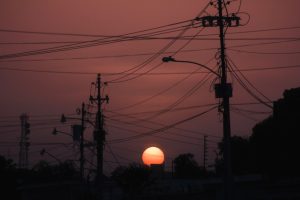Although Venezuela is currently producing around 690 Mb/d (April OPEC Monthly Oil Report Market), our country decreased its oil production to a historical minimum, and by June 2020 it stood at 356 Mb/d (levels of the 1930s), unacceptable figures for the former oil power of the Caribbean, and nothing comparable with the 3,200,000 b/d that Venezuela contributed to the energy market in 1997.
Faced with this drastic drop in production, both the government of Venezuela and the executives of Petróleos de Venezuela, S.A. (PDVSA) have repeatedly announced plans for “Production Recovery” or “External Commissions to Intervene and Reactivate the Oil Industry” that have only remained slogans and technicalities, and have not achieved the promised production goals. However, given the slight increase in production, the question arises: can Venezuela actually reach its old production levels with the current Organic Hydrocarbon Law or does it need a reform of the aforementioned Law?
Oil potential
According to a report by the Baker Institute at William Marsh Rice University, in Houston (Texas), Venezuela could increase its production to around 1 million b/d in the short term and recover a level of 2.5 million b/d in the short term. one of each. However, to achieve these levels of production, investments of around 10 billion dollars annually would be needed, an amount of investment that only PDVSA or the State will hardly be able to provide, if we take into account the current political and social circumstances (High Public Debt of Venezuela, non-payments or default of PDVSA since 2017, among others). Given such a scenario, there is no doubt that the key to the recovery of production in Venezuela will be its ability to attract private investment, and this requires urgently enacting a new legal regime adjusted to current circumstances. However, it is important to clarify that a reform to the LOH is not sufficient in itself to resolve the legal impact on the production problem. Even in the correct terms, not only must some provisions of the Law be replaced, but “the legal system that today regulates all the activity of the Oil Industry must be modified.”
Regulatory issues
That is to say, in Venezuela today there is a system of “total control” of all activities (direct, inherent and related) that is inefficient and highly bureaucratic, hindering operational work and reducing legal security to attract investors, by forcing them to give the money to PDVSA so that it can operate the joint ventures. Therefore, we must replace the total control system with an “effective investment system” that generates the appropriate legal conditions for national and foreign investment, and debureaucratizes administrative activities (Contracting of goods and services, fiscal control, investments , among other).
For example, we observe that the current law prohibits direct exploitation by private companies, leaving only the possibility of forming mixed companies, in which the State must have a shareholding greater than 50%. In addition, it imposes a royalty rate of 30%, and an Income Tax of 50%. As a direct effect of the previous regulation, the possibility for PDVSA to select the investment projects that truly interest it under the direct exploitation mechanism is nullified, and that on the other hand, it can grant to private companies (With the option of establishing EEMM with different share percentages) the exploitation of fields and attracting the required investment. Regarding the fiscal issue, the modification of the current Hydrocarbon regime will be required, generating greater competitiveness through the granting of incentives for the exploitation of different types of Hydrocarbons (extra-heavy crude oil, unconventional fields, among others).
The new legal system must provide protections and guarantees to national and foreign investors, encouraging safe, profitable and sustainable investment over time. It must also contain a strong regulatory framework so that the investments of PDVSA and any other oil company can be audited in a transparent manner. The key words for the future of the Venezuelan Oil Industry are “Investment and Stability.”






